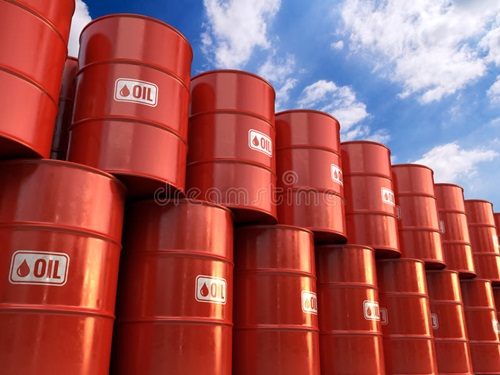International crude oil prices hit near 2019 highs in early trading today after the United States announced that the waiver of Iran-related sanctions extended to India and other seven Asian nations would end by 1 May, thereby throttling the flow of crude oil from Iran.
Washington on Monday made it clear that the waiver extended to India and seven others on economic sanctions for crude import from Iran is to end shortly. The Trump administration also is sending Alice wells, a senior official, to New Delhi this week to discuss crucial bilateral issues.
North Sea Brent crude futures were at $74.40 per barrel at 0239 GMT (8:09 am Indian time), up 0.5 per cent from the previous close and just 12 cents short of a 2019 peak of $74.52 reached on Monday.
US benchmark West Texas Intermediate (WTI) crude futures hit the highest level since October 2018 at $65.95 per barrel before climbing back to $65.89 by 0239 GMT, but still gaining 0.5 per cent compared to the previous settlement.
While US President Donald Trump tweeted "Saudi Arabia and others in OPEC will more than make up the oil flow difference in our now full sanctions on Iranian oil,” market forces are bound to push up oil prices further, pushing the India economy back to the oil boom days.
India’s dependence on Iranian oil could be gauged from the fact that its crude oil imports from Iran during the April-February 2018-19 at $ 11.42 billion was about 11 per cent higher than in the previous fiscal.
The United States on Monday warned eight biggest buyers of Iranian oil, most of them from Asia, to either stop purchases by 1 May or face economic sanctions.
The reimposition of US sanctions last year would end Iran’s current position as the fourth-largest producer among the Organization of the Petroleum Exporting Countries (Opec) with almost 3 million barrels per day (bpd) of oil production.
Iran’s oil exports in April shrunk to below 1 million bpd, according to ship tracking and analyst data in Refinitiv.
The US move, which has taken market participants off guard, is sure to reflect in market, leading to a significant tightening of oil supplies and drive up prices above the current levels, possibly back to levels above $100 a barrel.
The move to tighten Iran sanctions along with sanctions Washington has placed on Venezuela's combined with production curbs by oil producer cartel Opec has led supply cuts and tightening of the market since the start of the year.
A White House statement said, "The United States, Saudi Arabia, and the United Arab Emirates, three of the world’s great energy producers, along with our friends and allies, are committed to ensuring that global oil markets remain adequately supplied.”
But, how the three take timely action to ensure that global demand is met as all Iranian and Venezuelan oil is removed from the market remains to be seen.



















